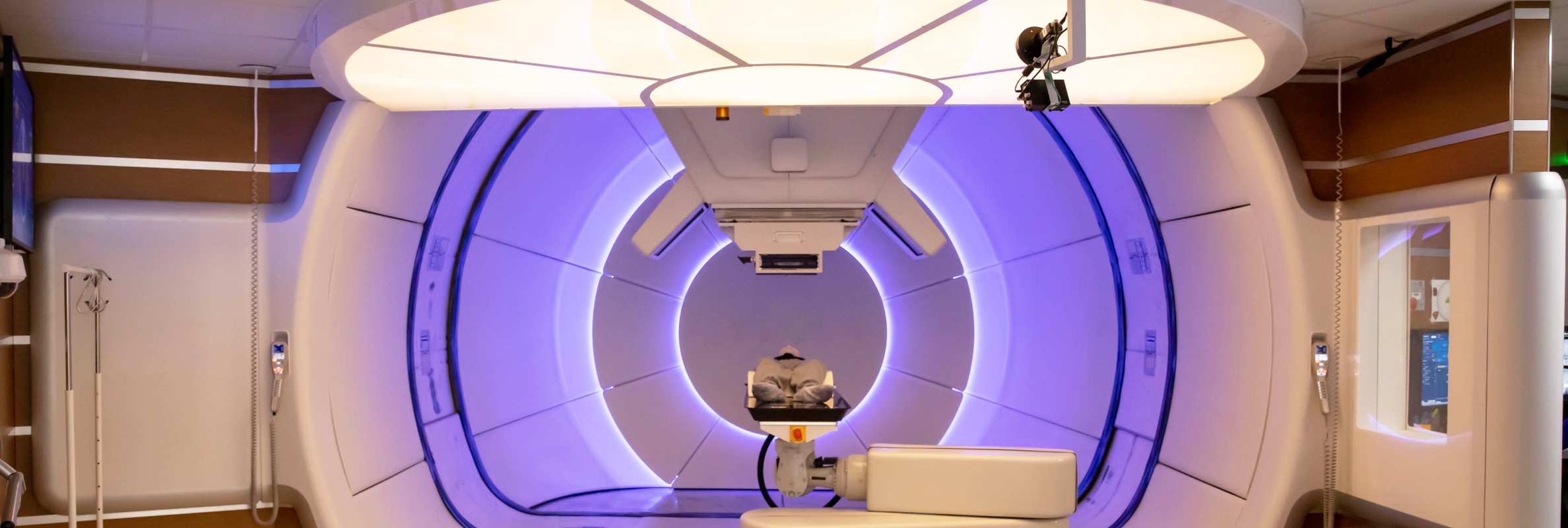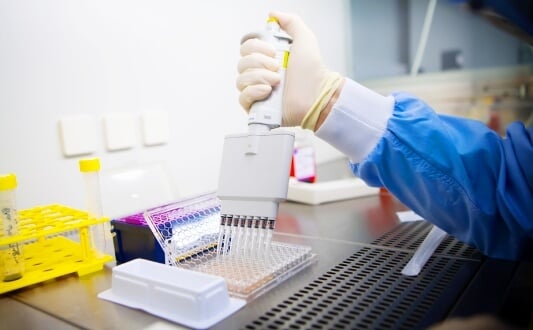The diagnosis of prostate cancer can shock even the most balanced man. However, the doctors say that prostate cancer is curable if detected at the initial stages and treated appropriately. In particular, radiation therapy has been successfully used in the treatment of prostate cancer.
Content
- Radiation therapy for prostate cancer
- External beam radiation therapy for prostate cancer
- Contact radiation therapy for prostate cancer
- Side effects of radiation therapy for prostate cancer
- Where is the best place for radiation therapy for prostate cancer?
- Costs of radiation therapy course for prostate cancer in different countries
Radiation therapy for prostate cancer
Radiation therapy is a treatment method for cancer that involves ionizing radiation. The effect of radiation therapy is based on the ability of ionizing radiation to damage the DNA of cancer cells, due to which they stop dividing and die. According to modern scientific concepts, radiation therapy for prostate cancer is comparable in effectiveness to radical prostatectomy.
The following types of radiation therapy for prostate cancer are available:
- As the main treatment method for localized prostate cancer (T1-T2 stages), if the surgical treatment is contraindicated for patient
- As the main treatment method for advanced prostate cancer, when surgery for the removal of the prostate gland will not give the desired result
- Radiation therapy is performed in addition to surgical treatment after prostatectomy to destroy the remaining cancer cells and prevent a recurrence.
Two types of radiation therapy are used for prostate cancer: external and internal. These radiation therapy methods can be used alone or in combination.
External beam radiation therapy for prostate cancer
The therapy involves external irradiation of the pelvic area. The patient lies on a special table during the external radiation therapy, and a linear accelerator moves around him and directs ionizing beams. The full course of radiation therapy for prostate cancer lasts 6-7 weeks. About five radiation therapy sessions are carried out per week.
The main stages of radiation therapy:
- Planning (simulation) of radiation therapy. At this stage, the required position of the patient's body and special immobilizing devices for fixation of the body is selected. After that, computed tomography of the pelvis is performed, and the localization and spreading of the prostate tumor are determined. Special marks are made on the patient's skin to indicate the target irradiation zone. It may also be necessary to place metal markers in the prostate.
- Elaboration of a radiation plan. With the help of images obtained, radiologists use a computer program to delineate the tumor. Then they create the radiation therapy plan – the doctors determine from which sides and at what angles it is better to irradiate the tumor and calculate the radiation dose.
- Radiation therapy session. On the appointed day, the patient comes to the clinic for the first radiation therapy session. He is asked to lie down on the linear accelerator table. CT scan is carried out to ensure that the patient is in the correct position. The accuracy of the irradiation depends on this. After all preparations, the radiation therapy session is started.
Thanks to modern equipment, radiation therapy has become more accurate and safer. In leading foreign hospitals, irradiation is carried out on linear accelerators operating in the IMRT mode. This mode allows radiologists to distribute the radiation dose throughout the tumor optimally and ensure the most sparing effect on the neighboring healthy tissues. The irradiation field is divided into many small areas in a computer program. Each of them is irradiated individually and with different intensities.
Contact radiation therapy for prostate cancer
It is also called brachytherapy. The essence of this treatment method is the insertion of radioactive granules inside the prostate gland. Thus, targeted irradiation of the prostate tumor occurs. Due to the short radius of radiation exposure, adjacent healthy tissues are not damaged by radiation. Brachytherapy is called the most sparing treatment for localized prostate cancer.
There are two options for brachytherapy in prostate cancer:
- Low dose-rate brachytherapy (LDR). This treatment method involves a single insertion of radioactive granules into the prostate. The implanted granules emit radiation for 1-3 months, and after the irradiation completion, there is no need to remove them from the patient's body.
- High dose-rate brachytherapy (HDR). During this type of treatment, catheters are inserted into the prostate, through which radioactive granules with a high dose of radiation are administered. The catheters are removed 15 minutes after the therapy completion. The procedure is carried out 2-3 times.
Side effects of radiation therapy for prostate cancer
Despite its effectiveness, radiation therapy also has side effects. So, radiation therapy can lead to the development of the following side effects:
- General malaise, fatigue
- Bowel dysfunction
- Inappropriate urination, including urinary incontinence
- Erectile dysfunction
- Lymphedema (accumulation of lymph in the legs or perineal area)
It is worth noting that radiation therapy is a tool that works well in experienced hands. The risk of side effects after radiation therapy is minimal in the case of accurate diagnostics and planning, the use of modern equipment, and ensuring proper patient care.
Where is the best place for radiation therapy for prostate cancer?
Radiation therapy is carried out almost everywhere, but it should be understood that various clinics differ significantly in terms of technical equipment. Unfortunately, most clinics in the CIS have to work with outdated equipment due to insufficient financing. In this case, the likelihood of post-radiation complications is high.
At the same time, the doctors from leading foreign hospitals use modern medical equipment, which is updated regularly. This allows them to achieve the best therapeutic results with minimal risk of side effects. Of course, prices for treatment abroad are higher than in the CIS. However, the quality of medical services is also much better.
The following countries are the best for radiation therapy for prostate cancer:
- Germany
- Turkey
- Israel
- South Korea
Germany is the leader in the treatment of cancers. Among the most popular hospitals in Germany is the Academic Hospital of the Goethe University in Frankfurt am Main. The Department of Radiation Therapy at the hospital offers patients all types of radiation therapy. More than 1,300 patients undergo radiation therapy here annually.
Costs of radiation therapy course for prostate cancer in different countries are
| Average price | |
|---|---|
| Germany | 28,200 EUR |
| Turkey | 34,000 EUR |
| South Korea | 36,600 EUR |
The treatment of prostate cancer abroad is more than real. The medical tourism operator Booking Health will help you with this purpose. We will arrange treatment for you in one of the best foreign hospitals.
You will not have to negotiate with the hospital and prepare documents – all these will be done by our employees. Booking Health provides such services as booking airline tickets and hotels and organizing transfers from the airport and back. With Booking Health, your treatment abroad will be as comfortable as possible.
Choose treatment abroad, and you will for sure get the best results!
See the interview for more information:
INNOVATIVE TYPES OF RADIATION THERAPY FOR CANCER – interview with Dr. med. Peter Stoll
Authors:
This article was edited by medical experts, board-certified doctors Dr. Nadezhda Ivanisova, and Dr. Bohdan Mykhalniuk. For the treatment of the conditions referred to in the article, you must consult a doctor; the information in the article is not intended for self-medication!
Our editorial policy, which details our commitment to accuracy and transparency, is available here. Click this link to review our policies.
Source:
National Center for Biotechnology
Read:
Why Booking Health - questions and answers
How to make right decision when choosing the clinic and specialist
7 reasons to trust to the rating of clinics on the Booking Health portal
Don't know where to start?
Contact Booking Health





